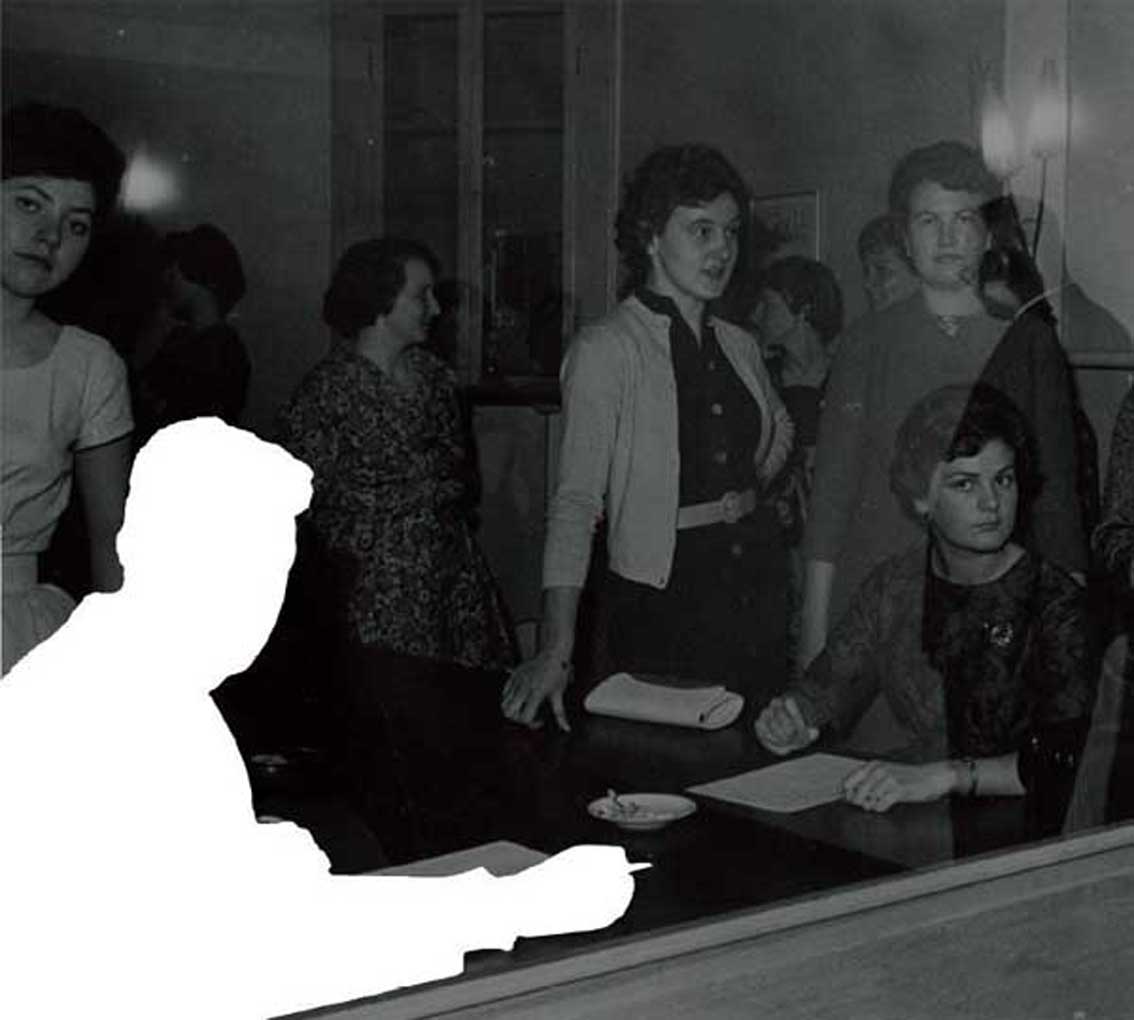 Originally released as an extremely limited LP on Savoury Days and recently reissued by Luke Younger's Alter imprint, this Southeast England band's second album was one of 2013's most criminally overlooked releases.  Combining post-punk deconstructionism, heavy industrial textures, and a strong bent for collage/improvisation, this enigmatic ensemble is a welcome addition to the beloved pantheon of hard-to-define, fringe-dwelling British weirdos like Zoviet France, Throbbing Gristle, and This Heat.
Originally released as an extremely limited LP on Savoury Days and recently reissued by Luke Younger's Alter imprint, this Southeast England band's second album was one of 2013's most criminally overlooked releases.  Combining post-punk deconstructionism, heavy industrial textures, and a strong bent for collage/improvisation, this enigmatic ensemble is a welcome addition to the beloved pantheon of hard-to-define, fringe-dwelling British weirdos like Zoviet France, Throbbing Gristle, and This Heat.
This is an atypically difficult album to describe, as there are all kinds of disparate strains colliding at once and they often come together in a rather uncategorizable way.Although the participants are uncredited, one of the group's founding members is recording engineer John Hannon, which explains a key part of the band's aesthetic: these pieces are clearly rooted in noise and improvisation but the end products sound deliberate, heavy, and hallucinatory in a way that indicates that someone with a distinct vision spent an enormous amount of time in the studio sculpting the raw material into something far better.  Some other probable participants are recent Andrew Chalk collaborator Tom James Scott and vocalist Nina Bosnic, though only Bosnic's contributions are distinctly identifiable.  There are other members too, but most of their contributions have been cannibalized for texture and atmosphere, though some melancholy violin melodies seem to have made it through the editing process intact.
There are two distinct types of "songs" that Liberez do brilliantly: heavy, quasi-industrial soundscapes and pieces that I would call "ethnographic forgeries," for lack of a better term.  The album's clear highlight, "A Warning," falls into the former category, combining a deep rumbling hum with Bosnic's disjointed "distressed answering machine message" vocals and a gathering storm of distorted, detuned bass; crackling noise; and swooping feedback.  Nina's vocals are even more prominent on the similarly excellent "Nema Te," endlessly intoning a sad, ravaged melody amidst a haunting miasma of hiss and eerily looping and chirping field recordings.  It only lasts for a minute and a half, but it is pure disturbing, surreal genius.  If I had heard it totally out of context, its mystery would probably haunt me for months or years, as it sounds far more like a creepy communique from the spirit world than anything resembling a song by a band of living humans.
"Nema Te, Pt. 2," on the other hand, is the finest of Liberez's ethnic/ritualistic "folk" excursions, an area where they share some common ground with folks like Natural Snow Buildings and Big Blood.  Though it initially begins with clanging metallic thump and a reprise of the forlorn melody from the first part, the piece gradually morphs into an echo-heavy vocal chant amidst snarling, anguished violins.  The violins make another strong appearance in the buzzing, ominous thrum of "Unhomely," embellishing Bosnic's clipped, looping vocals with a scraping, whining minor key melody that sounds both timeless and vaguely satanic.
The rest of the album is a mixed bag, but it is mostly a successful one.  Several pieces are quite atmospheric or incidental in nature and exist primary to further Sane Men's prevailing mood of disquiet and simmering menace.  Of the remaining pieces, the lengthy "My Madness Offends" is another album highlight, marrying eerily distant angelic vocals to an escalating rumble and frequent jarring slashes of static.  Another extended piece is the brutally cacophonous "What's Mine is Mine," which I am still very much on the fence about.  It kind of sounds like a crust punk band playing a drum kit made entirely of amplified garbage cans and oil drums most of the time, but unexpectedly segues into an interlude that sounds like a gnarled string collage culled from a The One Ensemble album.  Neat trick.
The fact that even my least favorite song on the album is totally striking, visceral, and unique is quite telling: this is an absolutely killer band.  While not all of Liberez's experiments are unqualified successes, they just about tear my head off when they get things just right and they do that with an impressive frequency.  Of course, I recognize that plenty of other fine bands have mined early industrial influences in the past, but these guys are different: Liberez is of the first acts that I have heard who feel like an genuine continuation of the UK's early '80s experimental music heyday rather than just a mere pastiche of very cool bands that they like.  And, if I am being completely honest, they are actually a lot better than quite a few of their influences.  I have not been this excited about a new band in a long time.
 
Read More

